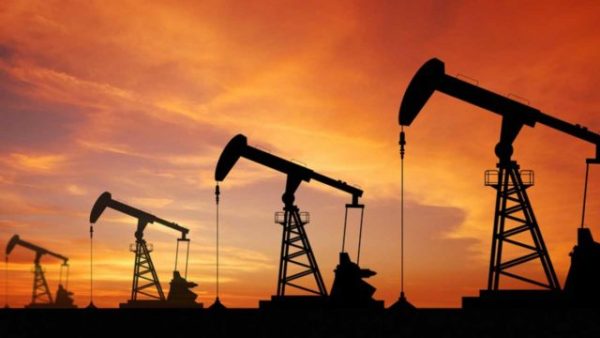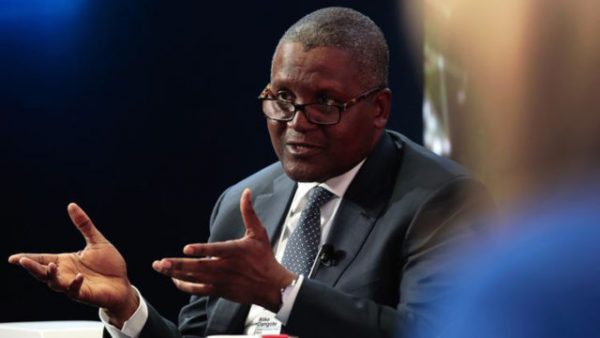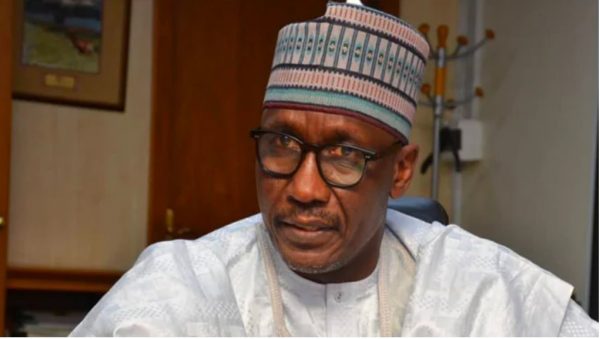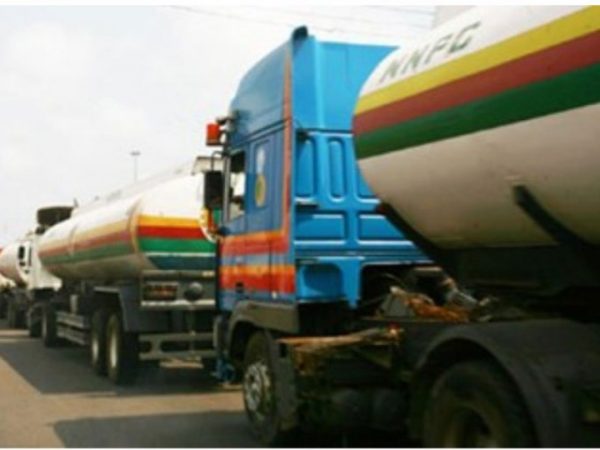Fossil Fuels Divestment May Halt $150b Oil, Gas Projects
 • IEA calls for end to fossil fuel investments with the launch of decarbonisation roadmap
• IEA calls for end to fossil fuel investments with the launch of decarbonisation roadmap
• Osinbajo canvasses equitable global energy transition for developing countries
• Stakeholders raise fresh concerns over continuous dependence on hydrocarbon
• Removal of subsidy, refinery rehabilitation, gas economy sacrosanct, minister insists
Mounting global advocacy aimed at halting all-new Final Investment Decisions (FIDs) for fossil fuels, especially oil and gas may create serious hurdles for new fields development as over $150 billion worth of projects risk getting stranded in Nigeria.
Investments in new fossil fuel projects will need to stop immediately if the world is to limit global warming to 1.5 °C, the International Energy Agency (IEA) has said in what commentators have described as a stunning challenge by the historically pro-fossil fuel body.
The world’s leading energy body in a report released yesterday, for the first time, unveiled its roadmap for reaching the critical target of tackling climate change by achieving net-zero greenhouse gas emissions by mid-century.
Among the climate milestones laid out by the Paris-based IEA are the demand to achieve zero emissions from electricity generation in rich countries by 2035, and the rest of the world by 2050.
Some of the keys to achieving this, the IEA said, would be Unparalleled investment in renewable and clean energy, an end to the sale of new internal combustion engine passenger cars by 2035, a four-fold increase in the deployment of solar and wind power by 2030, unprecedented levels of international cooperation between governments; and adoption of ‘no new oil and gas fields approved for development’ and ‘no new coal mines or mine extensions.’
Several countries, including the United States and the European Union, have pledged to achieve net-zero emissions. The IEA’s Executive Director, Fatih Birol, said the transformation would create millions of new jobs and boost economic growth worldwide.
HOWEVER, elusive legal and regulatory framework, especially the two-decade-old Petroleum Industry Bill (PIB) has left most oil and gas projects on the drawing board as the country misses out on Foreign Direct Investment (FDI) estimated by the National Assembly to stand at about $235 billion.
Coming at a time that oil giant, Shell Petroleum Development Company of Nigeria Ltd (SPDC), already moved to divest its equity from some oil blocs in the Niger Delta region, Minister of State for Petroleum Resources, Timipre Sylva, said in Abuja, yesterday, that the Federal Government was weighing options on the company’s move.
While the Minister disclosed that the nation’s oil exploration company, Nigerian Petroleum Development Company (NPDC) or indigenous oil firms could take over the relinquished assets, he noted that the oil giant is being engaged, stressing that it won’t be in the best interest of the country to watch the company exit the sector in any aspect.
Recall that The Guardian had reported that International Oil Companies (IOCs), including ExxonMobil, Chevron, BP, Total, Shell, and ConocoPhillips are planning to sell assets worth $27.5 billion in a bid to invest in new regions, according to research by Rystad Energy.
Many projects initiated in Nigeria’s oil sector have remained at the planning stage or bogged down by legal hurdles years after initiation. Some of the projects include Shell’s Bonga South-West and Aparo, which is expected to add about 225,000 barrel per day (bpd); Bonga North (100,000bpd); Eni’s Zabazaba-Etan (120,000bpd); Chevron’s Nsiko (100,000bpd); ExxonMobil’s Bosi (140,000bpd); Satellite Field Development Phase Two (80,000bpd) and Ude (110,000bpd).
These projects are estimated to cost around $100 billion, with the capacity to boost the nation’s production by as high as 875,000 bpd and revenue by about $1.5 billion.
Also mired in obscurity are the $20 billion Brass LNG project in Bayelsa State; the $9.8 billion Olokola LNG in Ogun; the 5000km Nigeria-Morocco offshore gas pipeline, which in the current market price would cost an estimated $20 billion.
ALTHOUGH Nigeria had succeeded with a few FIDs, stakeholders, yesterday, insisted that the country could be submerged in a revenue crisis faster than projected if the economy continues to solely depend on the oil and gas sector to function.
Researchers at the IEA had insisted that even if current climate pledges by global governments, including Nigeria, were achieved, the world would still fall short of bringing energy-related carbon dioxide emissions to net zero by 2050. For the global commitment to become feasible, the agency, therefore, noted that there must not be an investment in new fossil fuel supply projects and no further final investment decisions for new unabated coal plants.
With such development, the IEA forecasts gas demand would decline by 55 per cent to 1.75 trillion cubic metres per day by 2050, while oil demand will shrink by 75 per cent, to 24 million barrels per day.
Sylva, however, believes that Nigeria would have an escape through the development of gas, stressing that the country is poised to becoming a leading gas country by boosting existing reserve to 6 trillion cubic feet while adding that incentives are already embedded in the PIB to crash gas royalty from 7 per cent to about 2.5 per cent.
“We are not in the race of transiting from fossil fuels. For Nigeria, we are looking at gas as transition fuel or destination fuel,” Sylva said, adding that the country would develop its transportation sector, agriculture and industrial development, especially petrochemical with gas.
The minister, who equally spoke on the refineries, stated that the current administration was not interested in selling a dead refinery, adding that the refineries will be rehabilitated and handed over to global technocrats, who are in the business of managing refineries.
According to him, it is until the refineries are running that the country would discuss options on how they would be managed or sold.
Warning that the country has no option other than to remove subsidy on Premium Motor Spirit, which he described as not benefiting the masses, Sylva revealed that it was the intervention of the Department of Petroleum (DPR) that provided succour for the Federation Accounts Allocation Committee (FAAC) in May.
Vice President Yemi Osinbajo yesterday stressed the need for a just, equitable, and inclusive global energy transition especially for developing economies. Osinbajo noted that while investments in fossils are being sustained in wealthier countries, banning gas investments in developing nations raises questions, especially as the global community approaches the net-zero emission target of 2050.
The Vice President spoke in a keynote speech at the 7th yearly New York-based Columbia University Global Energy Summit organised by the Columbia Centre on Global Energy Policy, according to a Presidency statement released last night.
This year’s edition, which held virtually, focused on shaping the current energy system, what is ahead for energy policy, energy markets, geopolitics, technology, and efforts to reduce emissions while addressing climate change.
According to Osinbajo, “the global energy transition must be inclusive, equitable and just, taking into account the different realities of various economies and accommodating various pathways to net-zero by 2050. Nigeria and countries across Africa are committed to a net-zero future, especially given their vulnerability to the adverse effects of climate change, and all have expressed commitment to their national development contributions under the Paris Agreement, however greater support in developing and implementing robust energy transition plans is needed.
In clear advocacy for a fairer approach, the Vice President said “an inclusive and equitable transition will also take into account the principles of common but differentiated responsibility and leaving no one behind, that are enshrined into global treaties around sustainable development and climate action.”
Speaking on the Nigerian context, Osinbajo noted that: “It means building sustainability into our economic planning, and so we have developed an Economic Sustainability Plan, which includes our flagship “Solar Power Naija” programme aiming to electrify five million households and 25 million people by 2023, leveraging solar mini-grids and stand-alone systems. We believe in the potential of off-grid renewables to close the energy deficit in Nigeria and across Africa.”
SPEAKING on the growing advocacy against fossil fuels, an energy economist, Prof. Adeola Adenikinju, said the country’s capacity to expand oil reserves is endangered, stressing that the effects would not be immediate on the country’s oil and gas production, “but it has implications on future production and the energy markets as prices would trend down due to lower demand.”
Environmental Rights Activist, Nnimmo Bassey said: “This should be a good moment for Nigeria to vigorously plan a withdrawal from dependency on fossil fuel resources, adding that further investments in new fields risk getting stranded.
President of the Nigerian Association for Energy Economists (NAEE), Prof. Yinka Omorogbe, noted that the prevailing development must drive home the urgent need for the country to restrategise and reverse the present negative trajectory of the oil industry.
“If this doesn’t make us see that our gas utilisation activities need to be prioritised now and not later; and if this doesn’t make us see that with this and so many more writings on the wall, every day we dilly-dally in commencing petroleum reform makes us more of a global laughing stock, then I don’t know what will,” she said.
Renowned energy scholar, Prof. Wunmi Iledare, noted that it was very difficult to predict whether IEA has that much influence on investors in a global sense, adding that Nigeria needs an optimal strategy in response to energy transition dynamics.
Another expert, Madaki Ameh, said it was high time the Nigerian government realized that the profile of oil and gas as a fuel of the future would continuously be on the decline.
He said: “Without funding for new projects, the recovery of oil and gas will diminish as other fuels of choice assume a better profile. The signal for Nigeria is to diversify as a matter of urgency and deliberate policy, like other oil and gas producing countries, such as Saudi Arabia.”
The professor noted that Nigeria’s population is big enough to consume the country’s reserves for the next 30 years, adding that the economic potential of the country remains huge to sustain the development of the resources.
The Guardian






